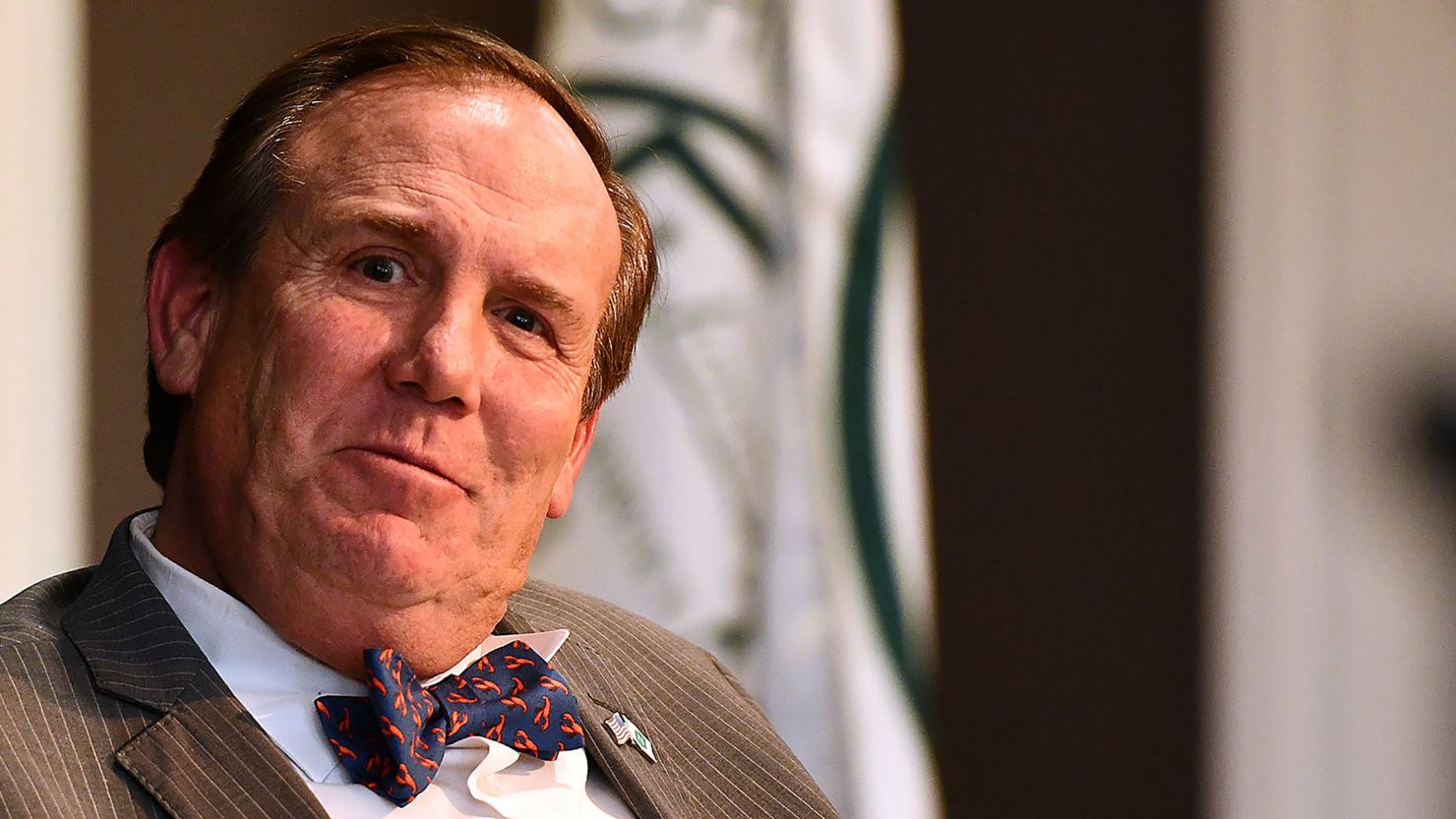The US Coast Guard Academy on Friday announced it had banned a retired captain from its grounds following a CNN report this week that revealed the captain, who is now president of a small college, exchanged hundreds of sexually suggestive messages with a student more than a decade ago.
Coast Guard attorneys had recommended prosecuting Glenn Sulmasy, who previously served as a department chair at the academy, on charges of conduct unbecoming an officer and willful dereliction of duty in 2016, even though he had retired eight months earlier. Coast Guard leaders rejected that recommendation and Sulmasy went on to have a successful career in academia, first as a provost at Bryant University in Rhode Island, and more recently as president of Nichols College in Massachusetts.
Also Friday, CNN obtained new documentation showing that Sulmasy’s alleged misconduct was more sweeping and involved another former student and subordinates, prompting Coast Guard officials to seek to demote his rank after he retired.
The case against Sulmasy was another example of the Coast Guard internally expressing concern about alleged sexual misconduct but ultimately choosing not to hold its service members accountable. Earlier this year, CNN reported on a secret investigation–dubbed Operation Fouled Anchor–that found dozens of sexual assaults and rapes at the Coast Guard Academy had been mishandled, and in some cases covered up.
Following CNN’s report on Sulmasy this week, the president of Bryant University released a statement that said Coast Guard officials contacted the president of the school in 2016 to revoke their prior recommendation of Sulmasy after completing an internal investigation. By then, Sulmasy had been hired and the then-president of Bryant University placed Sulmasy on probation. The statement did not say how long Sulmasy was on probation, nor whether the school had alerted Nichols College about the Coast Guard’s concerns.
A spokesperson for Bryant University did not immediately respond to a request for comment Friday. The chairman of the board of trustees at Nichols College said in a note to the campus last week, after inquiries from CNN, the school had launched a third-party investigation into the matter and that Sulmasy volunteered to take a leave of absence pending the results of that investigation.
An attorney for Sulmasy did not immediately respond to a request for comment Friday.
CNN’s report this week revealed a Coast Guard prosecution memo from 2016, which detailed texts Sulmasy exchanged with a student in 2010 and 2011. A Coast Guard attorney wrote in the memo that Sulmasy “offered to give high grades and show favoritism in class in exchange for sexual banter.” Separately, Melissa McCafferty, a 2011 academy graduate, told CNN that Sulmasy verbally harassed her and texted her that he would only write her a recommendation letter for law school if she sent him pictures of herself.
Sulmasy’s attorney, Jeffrey Robbins, previously called McCafferty’s allegations “false” and said the prosecution memo was “ridiculous on its face.” Robbins also said that “the intimate texts in question” with the student were characterized by prosecutors as “consensual in nature” and added that the proposed prosecution had been “rightfully rejected by the adults within the legal wing of the Coast Guard.”
After publication of that story, CNN obtained a 2016 Coast Guard performance evaluation of Sulmasy that documented other misconduct allegations against him. In addition to sexual texts Sulmasy exchanged with a cadet in 2010 and 2011, he engaged in “flirtatious” and “inappropriate” communications with another former cadet in 2013 and made “sexist” and “inappropriate” comments to subordinates, according to the report, which concluded he committed an “abuse of positional power.”
“There is no abuse a military officer, a trustee of the public confidence, can commit that is more foul than use of the officer’s rank, position, and prestige for self-gratification at the expense of others,” the evaluation report stated.
The “toxic environment” created by Sulmasy “violated the Coast Guard’s sexual harassment and civil rights policies,” stated the report, which recommended his rank be reduced.
In a written response to the report, Sulmasy protested the recommended rank reduction and argued that the evaluation report should not be submitted because he had already retired. He also argued that his rank upon retirement could not be changed under US law and Coast Guard practice.
Coast Guard officials did not respond to requests for comment Friday. Earlier, however, an administrator with the Coast Guard Academy, Eva Van Camp, wrote in an email to the academy that allegations about Sulmasy had been referred to the Coast Guard Investigative Service and that he “will not be allowed aboard the Coast Guard Academy campus.”
“The United States Coast Guard holds every one of us to the highest personal and professional standards and does not tolerate abuse in any form,” Van Camp’s email stated.











